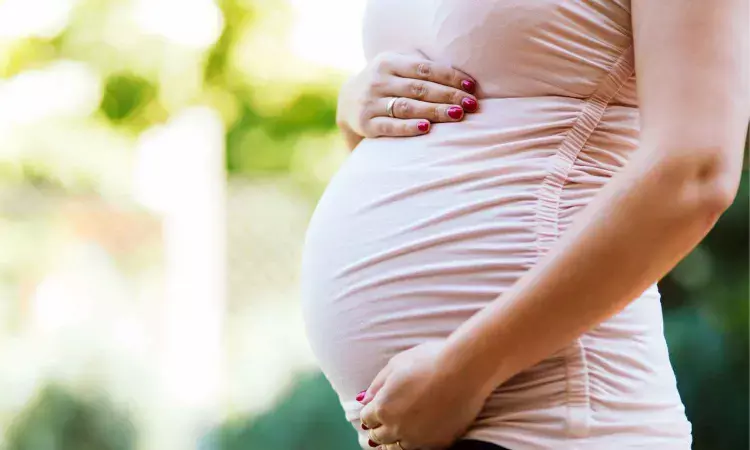- Home
- Medical news & Guidelines
- Anesthesiology
- Cardiology and CTVS
- Critical Care
- Dentistry
- Dermatology
- Diabetes and Endocrinology
- ENT
- Gastroenterology
- Medicine
- Nephrology
- Neurology
- Obstretics-Gynaecology
- Oncology
- Ophthalmology
- Orthopaedics
- Pediatrics-Neonatology
- Psychiatry
- Pulmonology
- Radiology
- Surgery
- Urology
- Laboratory Medicine
- Diet
- Nursing
- Paramedical
- Physiotherapy
- Health news
- Fact Check
- Bone Health Fact Check
- Brain Health Fact Check
- Cancer Related Fact Check
- Child Care Fact Check
- Dental and oral health fact check
- Diabetes and metabolic health fact check
- Diet and Nutrition Fact Check
- Eye and ENT Care Fact Check
- Fitness fact check
- Gut health fact check
- Heart health fact check
- Kidney health fact check
- Medical education fact check
- Men's health fact check
- Respiratory fact check
- Skin and hair care fact check
- Vaccine and Immunization fact check
- Women's health fact check
- AYUSH
- State News
- Andaman and Nicobar Islands
- Andhra Pradesh
- Arunachal Pradesh
- Assam
- Bihar
- Chandigarh
- Chattisgarh
- Dadra and Nagar Haveli
- Daman and Diu
- Delhi
- Goa
- Gujarat
- Haryana
- Himachal Pradesh
- Jammu & Kashmir
- Jharkhand
- Karnataka
- Kerala
- Ladakh
- Lakshadweep
- Madhya Pradesh
- Maharashtra
- Manipur
- Meghalaya
- Mizoram
- Nagaland
- Odisha
- Puducherry
- Punjab
- Rajasthan
- Sikkim
- Tamil Nadu
- Telangana
- Tripura
- Uttar Pradesh
- Uttrakhand
- West Bengal
- Medical Education
- Industry
Vaginal Progesterone for Preterm Birth Prevention Not Tied to Neuropsychological Outcomes in Dichorionic Twins: Study

Spain: Researchers have found in a new study that administration of 200 or 400 mg/day vaginal progesterone in late pregnancy for preterm birth prevention showed no impact on the cognitive or psychopathological outcomes of dichorionic twins at 6–9 years of age. The study was published online in the American Journal of Obstetrics and Gynecology.
Recent studies have shown that giving vaginal progesterone to women carrying twins with a short cervix can lower the chances of early preterm birth and reduce health problems in newborns. However, it is still unclear whether using progesterone during pregnancy has any long-term effects on the mental health and cognitive development of the twins as they grow older.
To bridge this knowledge gap, Alfredo PERALES, Department of Pediatrics, Obstetrics and Gynecology, University of Valencia, Valencia, Spain, and colleagues aimed to assess the mental health and thinking abilities of children aged 6 to 9 years, whose mothers had taken part in a study comparing two daily doses of vaginal progesterone (200 mg and 400 mg) with a placebo during twin pregnancies to prevent preterm birth.
For this purpose, the researchers conducted a follow-up of a multicenter, double-blind randomized trial with three groups—placebo, 200 mg/day, and 400 mg/day vaginal progesterone—given from 20 to 34 weeks of pregnancy or until delivery. At 6 to 9 years of age, children were assessed using the Child Behavior Checklist for behavioral and emotional issues, and Raven’s Colored Progressive Matrices for non-verbal intelligence. All participants and assessors were blinded to treatment allocation. Analyses were done intention-to-treat, with P < 0.05 considered statistically significant.
Key findings were as follows:
- The study included 206 children born to 104 mothers, accounting for 35.4% of the original trial participants.
- Of these, 75 children were exposed to 200 mg/day of vaginal progesterone, 63 to 400 mg/day, and 68 to placebo.
- There were no notable differences in maternal background, pregnancy, or neonatal characteristics between participants and non-participants, or among the three groups.
- Children exposed to progesterone (either dose) showed no significant differences in behavioral or emotional outcomes compared to those in the placebo group, based on the Child Behavior Checklist scores.
- The average total scores on the Child Behavior Checklist were similar across groups: 31.08 in the 200 mg group, 37.48 in the 400 mg group, 34.00 in the combined group, and 34.60 in the placebo group.
- The Raven’s test results, which measured non-verbal intelligence, showed slightly higher average percentiles in the progesterone groups (63.11 and 60.40) compared to the placebo group (59.40), but these differences were not statistically significant.
Overall, the study concluded that prenatal administration of vaginal progesterone—at either dosage—during the second half of pregnancy did not adversely influence the cognitive or psychological development of children born from dichorionic twin pregnancies.
"These findings provide reassuring evidence that the use of vaginal progesterone for preventing preterm birth in twin gestations does not carry long-term developmental risks for children, supporting its continued use in appropriate clinical scenarios," the researchers wrote.
Reference:
PERALES, A., AVIÑO, J., DIAZ-MARTINEZ, A., CONDE-AGUDELO, A., ROMERO, R., ROJO, L., & SERRA, V. (2025). Prenatal exposure to vaginal progesterone for the prevention of preterm birth is not associated with abnormal psychopathological and cognitive profiles in dichorionic twins at 6 to 9 years of age: A follow-up study of a randomized controlled trial. American Journal of Obstetrics and Gynecology. https://doi.org/10.1016/j.ajog.2025.04.056
Dr Kamal Kant Kohli-MBBS, DTCD- a chest specialist with more than 30 years of practice and a flair for writing clinical articles, Dr Kamal Kant Kohli joined Medical Dialogues as a Chief Editor of Medical News. Besides writing articles, as an editor, he proofreads and verifies all the medical content published on Medical Dialogues including those coming from journals, studies,medical conferences,guidelines etc. Email: drkohli@medicaldialogues.in. Contact no. 011-43720751


